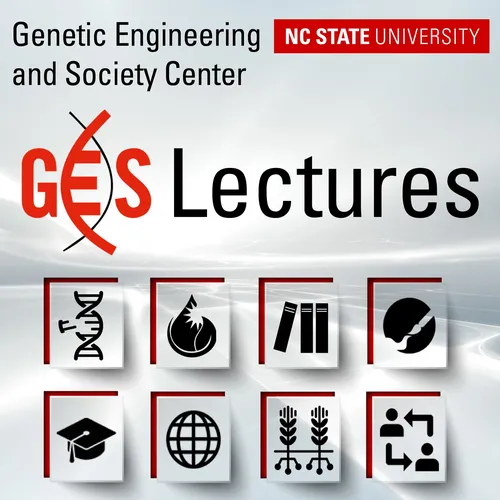S3E6 - Keerti Rathore - Engineering cotton for protein and weed resistance
- Author
- Patti Mulligan
- Published
- Tue 09 Mar 2021
- Episode Link
- https://ges-center-lectures-ncsu.pinecast.co/episode/752b68b2/keerti-rathore-engineering-cotton-for-protein-and-weed-resistance
Genetic Engineering and Society Center
GES Colloquium - Tuesdays 12-1PM (via Zoom) NC State University | http://go.ncsu.edu/ges-colloquium
GES Mediasite - See videos, full abstracts, speaker bios, and slides https://go.ncsu.edu/ges-mediasite
Twitter - https://twitter.com/GESCenterNCSU
Cotton, the most important natural fiber crop, also produces enough seeds containing ~10 million tons of protein. A broader use of this resource for food and feed is hampered by the presence of toxic gossypol in the seed. Twenty-five years of work in my laboratory has culminated in selectively eliminating this toxin from the seed and obtaining deregulation from USDA-APHIS and FDA approval for its food/feed use. More recently, we have demonstrated the potential utility of the ptxD gene (encoding phosphite dehydrogenase) in transgenic cotton in combination with phosphite as a system to manage weeds that are becoming increasingly resistant to herbicides.
Links & Resources
- Keerti S. Rathore, Devendra Pandeya, LeAnne M. Campbell, Thomas C. Wedegaertner, et al. (2020) Ultra-Low Gossypol Cottonseed: Selective Gene Silencing Opens Up a Vast Resource of Plant-Based Protein to Improve Human Nutrition, Critical Reviews in Plant Sciences, 39:1, 1-29, DOI: 10.1080/07352689.2020.1724433
- Devendra Pandeya, Damar L. López-Arredondo, Madhusudhana R. Janga, Keerti S. Rathore, et. al. (2018) Selective fertilization with phosphite allows unhindered growth of cotton plants expressing the ptxD gene while suppressing weeds. PNAS Jul 2018, 115 (29) E6946-E6955; DOI: 10.1073/pnas.1804862115
Guest Speaker
Dr. Keerti Rathore joined Texas A&M University in 1995. His early education was in India, followed by a Ph. D. from Imperial College, London in electrophysiology. While working at Purdue University as a postdoc, he switched to plant biotechnology in 1990. At Texas A&M University, he is utilizing the biotechnology tools (cell and tissue culture, genomics, transgenics and gene editing) to improve cotton, sorghum, rice and potato.
GES Center - Integrating scientific knowledge & diverse public values in shaping the futures of biotechnology.
Find out more at https://ges-center-lectures-ncsu.pinecast.co
